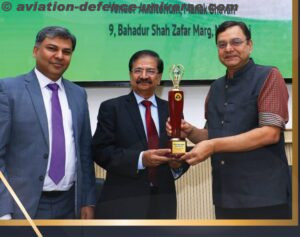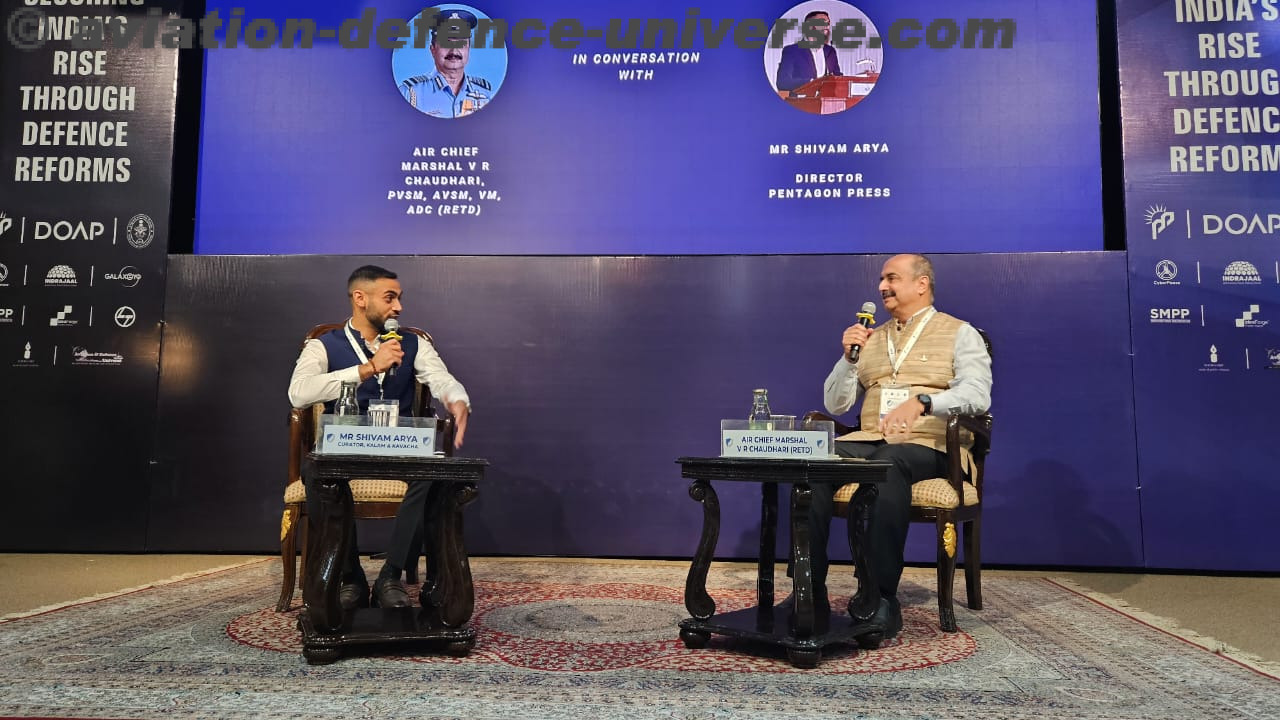By Sangeeta Saxena
Bangalore. 12 February 2025. In 1985, a young engineer from a small village dared to dream beyond boundaries. Armed with a Ph.D. in Chemical Engineering from IIT Mumbai and an unwavering vision, Dr. S C Kansal embarked on a journey that would redefine Indian industry. With a modest capital but limitless ambition, he laid the foundation of what would become the SM Group of Companies. Rooted in innovation and guided by strong ethics, his entrepreneurial venture grew from a single idea into a global, multi-product, and multi-unit powerhouse. It all began with the incorporation of S.M. Pulp Packaging Private Limited in Sangrur, Punjab—a bold step towards revolutionizing pulp packaging materials and setting the stage for an extraordinary legacy.
ADU. SMPP has become a well-known name in the Indian defence sector. Can you tell us about its origins and what motivated you to start the company?
Dr. SC Kansal. I come from a small village in Punjab with a background in business. My father was a shopkeeper and from a young age, I aspired to become an industrialist. I pursued my education in chemical engineering, earning my M.Tech and Ph.D. from IIT Bombay, where I specialized in cellulose technology. This subject covers a broad spectrum, from pulp and paper to explosive-grade cellulose. After completing my Ph.D. in record time, I started my first business in cellulose pulp molding.
 ADU. How did your early work in cellulose technology transition into defence manufacturing?
ADU. How did your early work in cellulose technology transition into defence manufacturing?
Dr. SC Kansal. Initially, I was developing my own self-fabricated machinery for cellulose molding. While financial institutions were hesitant at first, they later saw the success of my zero-pollution process and started recommending my company for equipment sales. Eventually, DRDO approached me with an opportunity to work on combustible cartridge cases for ammunition. I was given six months to develop a prototype, but I delivered a working model in just 15 days. This success led me to further collaborations with DRDO and the Ministry of Defence, eventually securing government contracts for indigenous defence production.
ADU. What were the major challenges you faced in establishing SMPP as a leading defence manufacturer?
Dr. SC Kansal. The journey was filled with obstacles—financial constraints, technological challenges, and bureaucratic hurdles. However, perseverance and support from key figures in DRDO and the Ministry of Defence helped me navigate these challenges. By successfully delivering import-substituted defence stores, SMPP gained national recognition in 1998. The Indian Army continues to use our products today.
ADU. How did SMPP expand beyond combustible cartridge cases to full ammunition production?
Dr. SC Kansal. Working closely with defence agencies, I gained deep insights into ammunition manufacturing. I attended every crucial meeting and worked through every challenge to understand the entire production process. This gave me the confidence to take the next step—manufacturing complete ammunition systems. Today, we are setting up a facility in Himachal Pradesh to produce full-scale ammunition.
 ADU. Your son has played a crucial role in SMPP’s expansion. How did he contribute to the company’s growth?
ADU. Your son has played a crucial role in SMPP’s expansion. How did he contribute to the company’s growth?
Dr. SC Kansal. After completing his studies at IIT Delhi and pursuing higher education in the U.S., my son joined SMPP with fresh ideas. He introduced innovative bulletproof jackets, advanced helmets, and shields, revolutionizing our product line. His vision has led us to successfully execute major Ministry of Defence orders, solidifying our position in India’s defence industry.
ADU. How has government support under ‘Make in India’ and ‘Atmanirbhar Bharat’ influenced your company’s growth?
Dr. SC Kansal. The Government of India has been instrumental in fostering indigenous defence manufacturing. Policies under ‘Atmanirbhar Bharat’ and ‘Make in India’ have created an encouraging environment for companies like SMPP to thrive. We are committed to meeting the defence needs of India, collaborating with DRDO and MOD to take on new challenges and strengthen our self-reliance in defence production.
SMPP’s journey from a small cellulose molding business to a key player in India’s defence industry is a testament to perseverance, innovation, and self-reliance. With a strong foundation in indigenous manufacturing and continued support from the government, SMPP is poised for greater advancements in ammunition production and protective gear. As India moves towards complete defence self-sufficiency, companies like SMPP will play a crucial role in shaping the nation’s security landscape.


































































































































